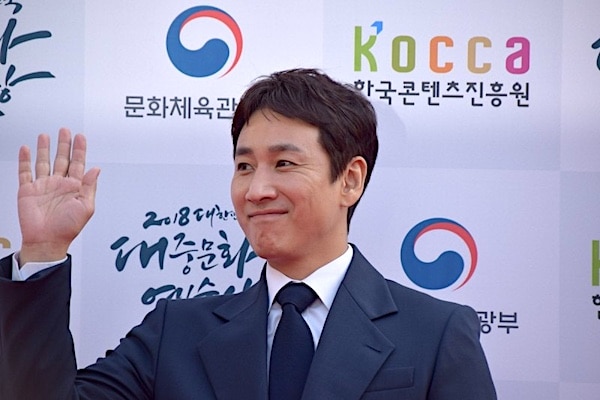This week actor Lee Sun-kyun, best known for his role in the 2019 film Parasite, took his own life. Why? Because he was under investigation for having used drugs, because it is illegal in South Korea not merely to have drugs but to simply have used them. Even smoking cannabis in a country where smoking cannabis is legal can lead to you being thrown in prison when you return to South Korea—they’ll drug test you at the airport. Lee had been blackmailed about allegedly smoking pot and was hit with a travel ban while the police investigated. He left behind a wife and two children.
“China” is often the subject of Western ire, or at least the exaggerated “China” we’re sold by mainstream Western media, but few in this part of the world ever turn their attention towards South Korea, a nation that seems to get by in the popular Western imagination with a cursory identification as a “liberal democracy.” This impression is a farce. South Korea has been a “liberal democracy” since the fall of its fascist military dictatorship in the 1980s, but in practice the country is anything but.
In Korea, thanks to its National Security Law, it is illegal to be a communist. It is illegal to be even remotely sympathetic to North Korea. It is illegal in most cases to criticize the government. It is illegal to voice support for some politicians. In some cases the offences I’ve just listed can net you the death penalty. Comparatively, China does have a death penalty as well—for crimes such as murder.
Meanwhile, South Korea is an occupied state of the U.S. military, a place where even anti-American sentiments may be punished, and U.S. soldiers are routinely acquitted on charges of killing or raping Korean citizens. But it only makes sense, considering the country itself is an invention of American foreign policy. In fact, following the Second World War, the U.S. government even enlisted the help of the Japanese in figuring out how Korea should be run, which, when considering the horrendous crimes the Japanese carried out against the Korean people, is a bit like asking the Ustaše how to administer Serbia.
South Korea’s injustices are of course overshadowed by the constant cavalcade of lies sold to us about North Korea, which largely amount to vacuous tabloid nonsense. Look no further than contrary reports telling us that North Korean men are required by law to get Kim Jong-un’s haircut while simultaneously being banned from getting Kim Jong-un’s haircut. Almost all of these fanciful allegations are uncritically taken from Radio Free Asia, a U.S.-funded propaganda apparatus that sources most of its claims as “some guy told me.”
At the same time, the vast majority of stories coming from North Korean defectors often wind up being revealed to be constructed almost entirely out of whole cloth, probably because there is a nearly $1 million price tag set by South Korea for the zaniest—my apologies, I mean “most classified”—stories about what goes on in the reclusive Hermit Kingdom, likely at least in part to deflect attention away from South Korea’s authoritarian streak, and continue the façade of South Korean freedom. But perhaps Lee’s death will help to change that perception and bring more international attention to just how repressive the South Korean government really is.
We can only hope.
Jack Daniel Christie is a writer, artist, and law student of Anishinaabe descent, splitting his time between Toronto and Montréal. His poetry has appeared in Soliloquies, Headlight Anthology, and Bad Nudes.

